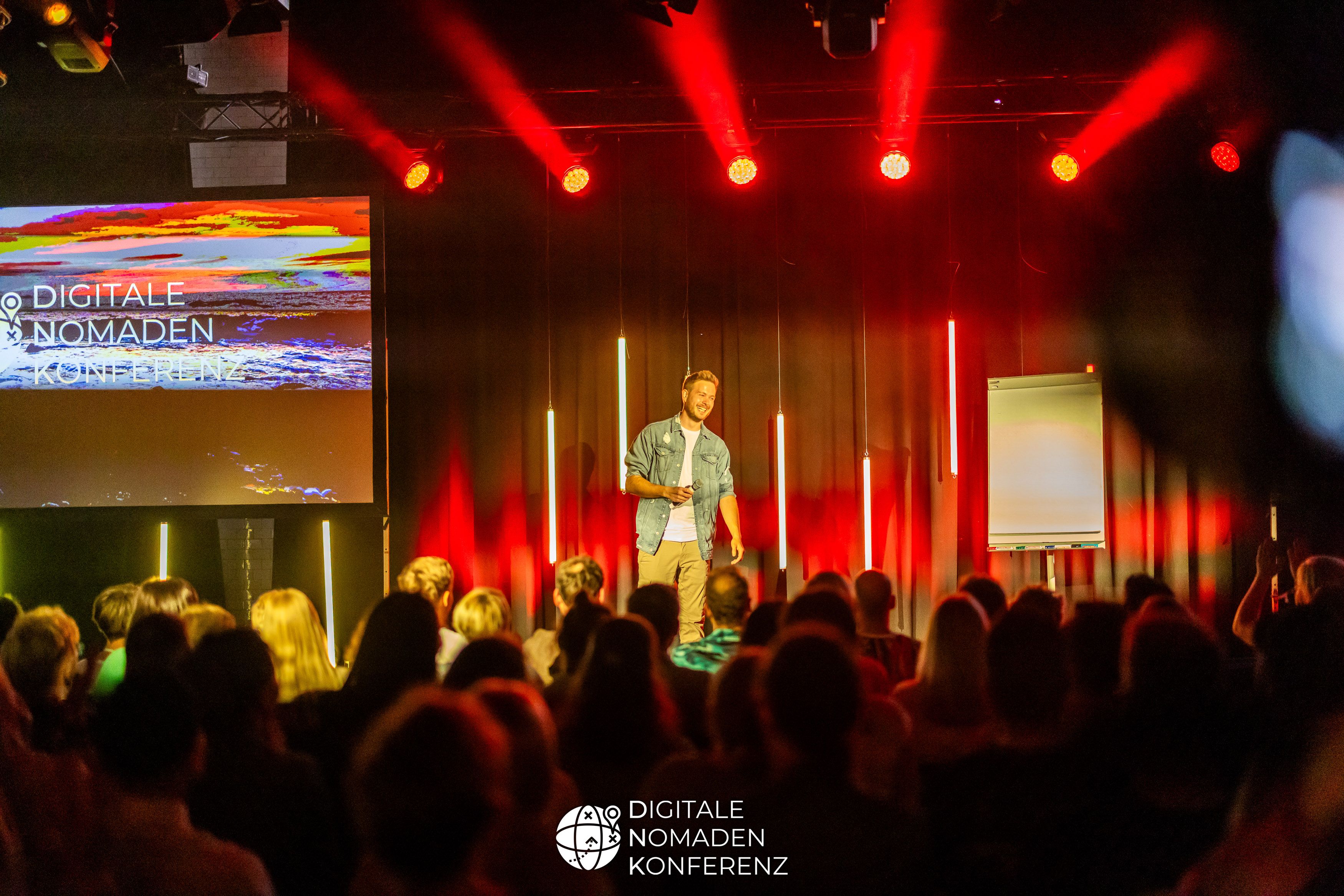The world of work has changed fundamentally in recent years. Digital nomads are redefining the way we work. But what is behind this lifestyle and how can companies benefit from it?
What is a digital nomad?
A digital nomad is a person who works remotely, mainly with the help of digital technologies. Instead of being tied to a fixed office workplace, they can work from anywhere in the world - be it a café in Paris, a beach in Bali or a co-working space in Berlin. The main feature of this way of working is flexibility in terms of location and working hours. The highest value for digital nomads is freedom.
The different forms of digital nomadism
- Permanent travelers
These nomads are constantly on the move and combine discovering new places with their professional activities. They are characterized by a high degree of flexibility and a thirst for adventure. Their lifestyle requires good organization, especially in terms of internet availability and time zone management. - People living in one place
They settle in one place for a longer period of time, living there for months or even years. This allows them to immerse themselves more deeply in the local culture and maintain a stable work routine. - Workation
“Workation” is made up of ‘work’ and ‘vacation’. Workation describes the opportunity to work in a nice place (where others go on vacation). Modern companies sometimes allow their employees to go on a workation for one or more months a year. This encourages creativity and productivity, and employees often return refreshed and with new ideas.
In fact, most digital nomads are not constantly traveling. They often have a fixed place of residence in Germany, which provides them with a stable base. However, the flexibility of their work allows them to travel whenever they want. Many therefore take the opportunity to go on workations several times a year - be it with a group of like-minded people, their partner or alone. Most digital nomads also only travel with hand luggage and tend to keep things minimalist.
Forms of work for digital nomads
Digital nomads work in various forms:
- Self-employed: As freelancers or solo self-employed, they offer services such as web design, content creation or consulting.
- Entrepreneurs: They found their own companies or start-ups that operate decentrally. Virtual teams and remote management are common here.
- Employees: Some are permanent employees whose companies allow them to work from anywhere, often with flexible working hours.
Online, networked, productive: the tools of digital nomads
Digital nomads work almost exclusively online. They use a variety of tools and platforms to work efficiently and effectively:
- Communication tools: Slack, Microsoft Teams and Zoom are the most common tools for staying in touch and holding meetings.
- Project management: Trello, Asana and Monday.com help organize and track tasks and projects.
- Cloud services: Google Workspace and Dropbox enable access to documents and files from anywhere.
- Time tracking: Tools such as Toggl or Clockify help to track working hours, which is particularly important for freelancers and their clients.
By using these tools, digital nomads can work seamlessly with teams around the world, regardless of different time zones and locations.
Which professional groups can work as digital nomads?
In principle, all professions that mainly work on a laptop and do not require regular face-to-face client appointments or a physical presence at a fixed location can theoretically work remotely and therefore as digital nomads.
The two most important core competencies for self-employed digital nomads, regardless of their actual service, are marketing and sales.
Exchange and efficiency in remote teams
Communication in remote teams often takes place via virtual meetings and project updates. Asynchronous communication, in which information is transmitted with a time delay, takes time differences into account and enables team members to work together effectively regardless of their location.
In order to always have a good internet connection, many remote workers use SIM cards from the respective country. These can easily be purchased from any online provider with unlimited internet. Even when we were working in Egypt in the desert, we had excellent Internet access.
Do they work at all or are they just on vacation?
The efficiency of remote working and digital nomads depends on various factors, including individual discipline, the tools used and the communication structures. In particular, remote working also requires a high degree of self-organization and time management.
What do digital nomads need to work and where do they work without an office?
Digital nomads have the flexibility to work in different locations, depending on their personal preferences, the nature of their work and the available infrastructure. Here are some of the most common work locations:
- Home office: in some cases, digital nomads rent accommodation for a longer-term stay abroad. This offers the comfort of a personal environment and allows them to set up an individual workplace.
- Co-working spaces: Many digital nomads use co-working spaces, which offer professional working environments, fast internet, meeting rooms and networking opportunities.
- Cafés and libraries: Some prefer the relaxed atmosphere of cafés or the peace and quiet of a library. These places often offer free Wi-Fi and provide a change from working from home.
To work as a digital nomad, you need:
- Reliable internet: High-speed internet is crucial.
- Laptop and mobile devices: A powerful laptop is essential.
- Productivity tools: Project management and communication tools.
Countries that offer a good digital infrastructure, favorable time zones and a high quality of life are particularly suitable for permanent employees of German companies:
- Portugal: Lisbon and Porto offer fast internet, numerous co-working spaces and an active community. Time zone only one hour behind Germany.
- Spain: Cities such as Barcelona and Madrid have an excellent digital infrastructure and are in the same time zone as Germany.
- Croatia: Cities like Zagreb offer a low cost of living and good digital infrastructure. Same time zone as Germany.
- Italy: Rome and Milan offer cultural richness and a growing remote working community, also in the German time zone.
These countries offer ideal conditions for permanent digital nomads as they offer fast internet connections, affordable cost of living and time zones that allow easy coordination with the German headquarters.
Digital Nomads Conference
Once a year, the Digital Nomads Conference in Berlin (digitale-nomaden-konferenz.de) brings together people who already live and work remotely and those who aspire to this lifestyle. The best way to successfully work remotely is to exchange ideas with others who have already taken this path. The conference offers workshops and lectures on various topics from the fields of entrepreneurship, marketing and smart working. However, the main focus is on personal exchange and networking.

©Ronny Barthel Creative Works Limited
Conclusion
The dream of remote working as a digital nomad is tempting for employees and freelancers alike, as it offers a great deal of freedom. However, depending on the project phase or workload, there are days in this lifestyle when you have to sit at your laptop all day in the best weather with the sea in front of you.
The trend towards digital nomadism offers companies many opportunities, including access to a global talent pool and the possibility of establishing flexible working models. Modern companies that offer their employees flexibility in the way they work can benefit from higher employee satisfaction and productivity.
About the author: Sascha Müller
Sascha Müller is an expert in digital nomadism and remote working. As the organizer of the Digital Nomads Conference in Berlin, Germany's largest event for remote working, he brings together numerous experts and interested parties every year. He also organizes workations in Portugal for permanent and self-employed remote workers.





